1. Writing is not a gift from the gods. It’s hard work.
Like anything else, if you don’t believe you can be a writer (a great writer, a published writer, a person who earns a living as a writer), you won’t be one. After teaching for 17 years, there is one thing I can promise you: You can only do something if you believe you can.
A lot of people will tell you that you can’t be a writer because: you don’t have an MFA, you don’t have enough time, you don’t fit their image of what they think it means to be a writer, you can’t quit your day job—the list goes on and on. With your own doubting voice in the back of your head, there will be a million times when you doubt yourself.
When I was teaching, I worked with a fifth grade student who was reading at first grade level. As he struggled to read the equivalent of a Dr. Seuss book, he looked at me and asked, “How do you know I can read?” My answer: “Because I say you can, and I believe you can. But if you don’t believe you can, what I think doesn’t matter. So here’s the real question: Can you do this?” His answer: “Yeah, I can do this.”
And he did.
2. Write whenever you can.
When I wrote my half of Beautiful Creatures, I was still teaching and I had a 2 month-old baby. I wrote my share at night, sitting on the floor of my two year-old son’s bedroom, waiting for him to fall asleep. Some nights, I wrote a chapter; other nights, I wrote a page. Some nights, I wrote nothing. But I carved out whatever time I could to write.
There was no deadline for Beautiful Creatures because my coauthor, Margie, and I didn’t write the book to be published. We wrote it for 7 teenagers. By the time we started writing Beautiful Darkness, we had a contract and a deadline. That book didn’t take much longer to write, but I found myself writing in shorter spurts. Sometimes I wrote for an hour at lunch, and then I’d come home and write for two hours at night. Weekends became key. I wrote while my kids napped, or I stayed up late after they fell asleep at night. I just kept going.
It might take you a few months to write your book, or it might take you a few years. The important thing is to carve out time to write and keep going. If you wrote a page a day, every day, you’d have a finished novel in less than a year. But if you never start and you don’t make the time, you’ll never finish.
3. Don’t chase trends.
A lot of people say you should write the story you want to tell. As a person who was a reader long before she became a writer, I prefer a similar piece of advice: Write the book you want to read. Don’t try to write a fantasy novel because Game of Thrones is popular on TV or because you think everyone is reading fantasy novels (wouldn’t that be amazing?). Don’t write about vampires just because everyone’s writing about vampires, unless you actually have a story that you are dying to write about vampires (that is hopefully very different than all the other vampire stories/books that are already out there).
If you’re dying to write a book about something that happens to be trendy, so be it. But it’s important to remember that even if you’re a published author with a high likelihood of being able to sell whatever it is you’re writing, it will probably be a year to two years from the time you begin writing to the time the book is actually published. Trends change quickly. Think about how quickly those black rubber band bracelets in the 80’s went from being a must-have to a must-hide-in-the-back-of-a-
4. Know what you’re going to write about.
I am a plotter, an outliner, a lover of index cards. While I understand there are pantsers out there who don’t outline or write down a single word before they start writing their draft, I still think it’s helpful if you know something about what you plan to write about. There are a million ways to plan a novel, from outlining to drawing pictures and storyboarding to brainstorming titles or developing a protagonist. But in the end, I think it’s much easier if you know what you’re going to write about, even if it’s one simple thing like: How does the story end? What does the protagonist want? What is the problem in this story or the challenge that the protagonist has to overcome? What if vampires were real?
I don’t have a ton of advice for pantsers, since that’s not the way I write. But if you’re interested in reading more about different ways to plan a novel (outlining and beyond), here are a few of my favorite books: Outlining Your Novel: Map Your Way to Success by K.M. Weiland, Save the Cat by Blake Snyder, Plot & Structure by James Scott Bell, & Wonderbook: The Illustrated Guide to Creating Imaginative Fiction by Jeff VanderMeer.
5. Read as much as you can.
I’ve never met an amazing writer who wasn’t a voracious reader. Read everything in your genre, and then read everything else—fiction, nonfiction, short stories, articles, poetry. And read the classics in your genre. If you’re going to write science fiction, don’t just read the sci-fi novels that have been popular in the last few years—go back and read the classic science fiction novels. There’s a reason classic books are considered classics. It doesn’t necessarily mean you’ll love every one of them, but you will understand the roots of your genre & the inspiration for other novels that you do love.
I’m not a proponent of reading bad books just for the sake of reading. I believe reading is like osmosis, and you actually absorb some of what you’re reading. I believe there is value in reading poorly written or derivative material if you are analyzing that material to see what doesn’t work about it. Life is too short—and there are too many amazing books out there to read—to waste your time reading crappy ones. Don’t forget graphic novels and comics when you are making your reading list, either.
6. Finish the first draft—no matter how bad it is.
Resist the urge to make your first draft perfect or edit as you write. Some writers can pull this off, and I’m always in awe of them. But for many of us, if we worry about every word or sentence in a first draft, we’ll never actually finish it. The first draft should be messy and sloppy and disjointed, and possibly filled with crazy ideas or scenes you’ll probably end up cutting in the second draft. But when you’re writing the first draft, just put it all in there—all the crazy ideas, weird characters, or subplots that you aren’t 100% sure how to thread into the main plot. Just finish. You may end up cutting subplots or characters or dialogue you weren’t sure about, or you might find a way to make it work in your second draft. Sometimes you write a character, scene, or setting that doesn’t work in the novel you’re writing, but ends up working perfectly in a future novel or short story. Which leads me to #7…
7. Create a dump folder & file.
Create a dump folder for all the ideas and bits of writing that you cut or don’t develop. You can also add ideas or other concepts that pop into your mind that you aren’t ready to develop yet. The important thing is don’t just cut things and throw them away. I use a dump folder to hold my dump files—one for every single novel. As I’m writing, or more likely editing, if I cut a passage, scene, etc., I add it to the dump file for that book. If I think I might add it back in, sometimes I note the scene before it, the context, or the chapter I cut it from. But more often, I just cut it, paste it in my dump file, & skip a few lines before I dump in the next thing.
8. Carry a notebook.
My notebook is the dump file for all the ideas I haven’t written down yet. If you’re anything like me, you have a great idea and you’re convinced it’s so amazing that you will remember it by the time you get home in 15 minutes to write it down. And if you are anything like me, by the time you get home, you’ll have forgotten your amazing idea. Carry a notebook or something to write on so that when you think of an amazing title, line of dialogue, solution for a problem in your present novel, etc., you have somewhere to record your epiphany. If you don’t like carrying a notebook, at least fold up a sheet of paper and carry it in your pocket.
9. Read everything you write out loud.
When I was still teaching, I was lucky enough to take a small group of students to meet the amazing novelist/screenwriter/artist C
10. Find a critique partner.
Find someone to read your writing and give you honest feedback. Unless she is the meanest person who ever lived, the person you choose should not be your mother. If you’re lucky enough to have a writer you admire as a friend, you can ask that person to read for you. Or, pick the friend who will tell you that you look really ugly in the dress you love. That’s the person you want to read your work. I can supply my own compliments. What I need is someone to tell me what isn’t working. But, to borrow the advice of a much greater writer than myself, as Neil Gaiman says: If someone tells you there’s something wrong with your book, they’re probably right. If they tell you how to fix it, they’re probably wrong. As the writer, you have to make the ultimate decision about what to keep or change in your book. But it’s invaluable to have an objective set of eyes, especially if those eyes happen to belong to someone who reads a lot.
By the time a book hits the bookstore & library shelves, it has usually passed through a lot of hands. After I finish a draft and my editor reads it and gives me notes, and my critique partners read it and give notes, I rewrite it. Then my editor and critique partners give another round of notes, & I rewrite it again, it’s still not over. Next, my book goes to a copyeditor who checks the grammar, syntax, usage, punctuation, & timeline. I never realized how many drafts most books go through until Margie and I sold Beautiful Creatures. So even if you write the cleanest draft in the world and revise that draft to perfection, you are still doing yourself a disservice by comparing your draft to a novel that has passed through so many hands. Even if you plan to follow the self-publishing route, you should still have a professional editor and copyeditor read and edit your novel. You will be amazed at all the things you missed.
12. Learn how to take criticism.
Do not be precious with your words. If you take it personally when your beta readers, critique partner, or editor give you constructive criticism, you’re not going to be able to grow as a writer. You don’t have to agree with every piece of criticism you’re given, but you also don’t need to feel angry or defensive about it. And if several readers give you the same piece of criticism, there’s a reason. Even if the scene, character, etc. works for you, it must not be working for your readers. Unless you’re writing books for yourself and you never plan to show them to anyone else, that’s a problem. I’m not saying you need to change every word someone suggests. But if you learn to take criticism and see it as an opportunity to make your writing better, clearer, etc., your book, story, article, or other project will be stronger.
13. Do not “save” things for your next book.
This piece of advice is more applicable if you’re writing a series, but it’s still important. Do not save amazing reveals, twists, dialogue, etc., for your next book because you’re worried about creating a series or having material for the sequel. The only time you should hold something back from the book you’re writing if it doesn’t actually belong in that book or work with the plot line. You should put everything you’ve got in there, especially if it is the first book in a series. Because if the first book sucks, there will be no second book to put all the amazing things you’re saving in.
As a reader, there is nothing worse than getting invested in the world and characters, only to feel the writer holding out on you (and readers can feel it).
13.5. Don’t get hung up on what you can’t do (don’t have time for, etc.). Start thinking about what you can do.
If you want to be a writer, then write. Stop making excuses, second-guessing yourself, worrying about what other people think, imagining all the rejections you might get & just write. The only difference between someone who is a writer and someone who’s not is writing. Start writing.


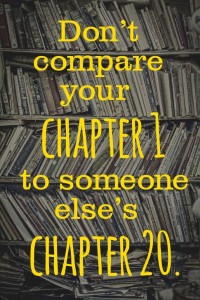
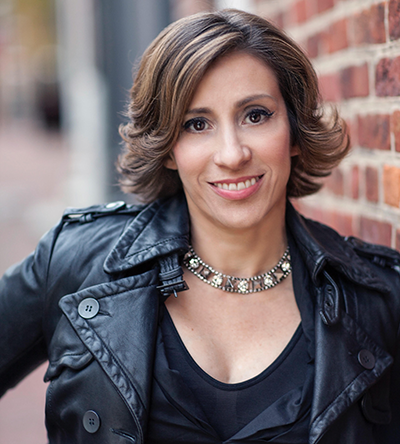
 a #1 New York Times, USA Today, and international bestselling author and comic book writer. As an award-winning, Bram Stoker Award-nominated young adult author of 12 novels and graphic novels, she has been published in 51 countries and 38 languages and her books have sold more than 10 million copies worldwide. Kami’s best known works include the Beautiful Creatures series, Teen Titans: Raven, The X-Files: Agent of Chaos, The Lovely Reckless, Broken Beautiful Hearts, and the DC Black Label comic Joker/Harley: Criminal Sanity. She is also a cofounder of the Kid Lit book festival YALLFest.
a #1 New York Times, USA Today, and international bestselling author and comic book writer. As an award-winning, Bram Stoker Award-nominated young adult author of 12 novels and graphic novels, she has been published in 51 countries and 38 languages and her books have sold more than 10 million copies worldwide. Kami’s best known works include the Beautiful Creatures series, Teen Titans: Raven, The X-Files: Agent of Chaos, The Lovely Reckless, Broken Beautiful Hearts, and the DC Black Label comic Joker/Harley: Criminal Sanity. She is also a cofounder of the Kid Lit book festival YALLFest.
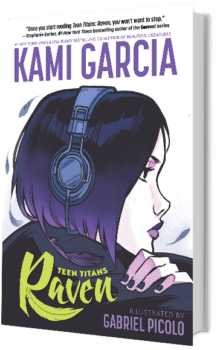
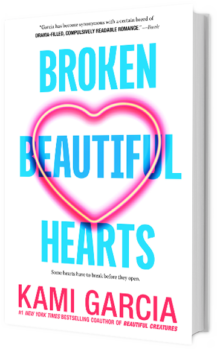
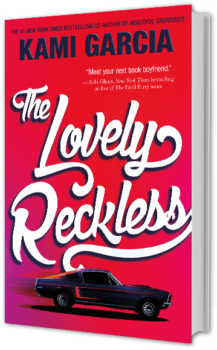
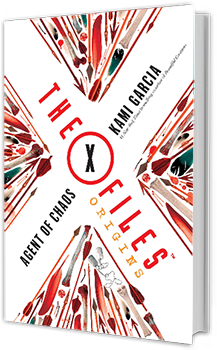
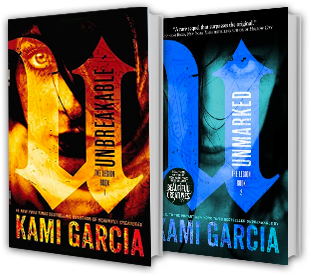
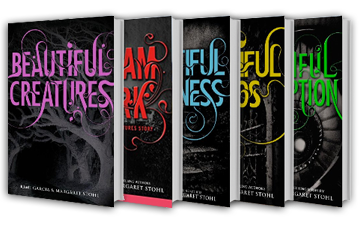
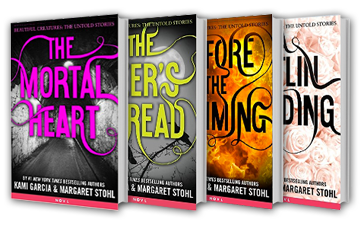
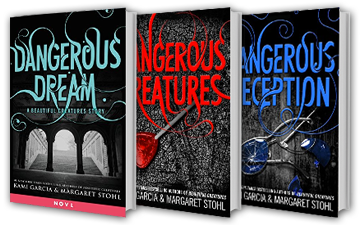
Fantastic advice, all the way down. Now I just need to follow more of i!
Thank you! Let me know how it goes.
[…] of my work. I know it’s a crucial part of the writing process, and after reading Kami Garcia’s 13.5 Things That Will Change Your Writing, I decided to accept that I need help and got on with […]
[…] 13.5 Things That Will Change Your Writing […]